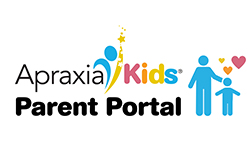Sometime during middle or high school, your adolescent may tell you they want to discontinue speech therapy. Or the SLP may come to you with concerns about lack of participation or cooperation in therapy. It is important when this happens that the teen feels heard. Listen to your teen about why they are not wanting to go to therapy. Then you and your teen should talk to the SLP about the pros and cons of either taking a break or discontinuing therapy. Discuss the importance of continuing speech therapy and what your and your child’s goals are for their speech. Teenagers often get to a point where they think their speech sounds fine. Others don’t have a problem understanding them and their speech is not hindering their ability to participate fully in school or extracurricular activities, as well as engaging with their friends. As a parent, you want your child to be able to talk perfectly all of the time, but as a teenager, that may not be a priority at this time. It is ok to allow the adolescent to make a decision to discontinue speech therapy. Sometimes this happens and then later their priorities may change – talking to a significant other may be important, or to run for class office, or audition for the debate team or for theatre, or to get a job may require improved speech skills. At that point, they may decide to return to speech therapy to improve their skills and motivation will be high and progress will be made.
